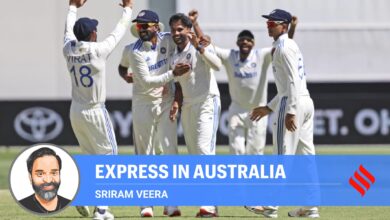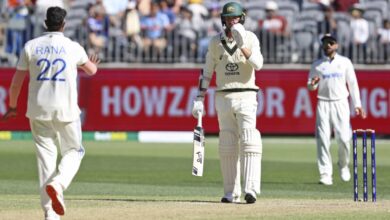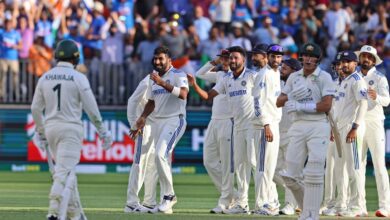From carving out wood pieces

The last President of the Union of Soviet Social Republics (USSR) and Nobel Peace prize winner Mikhail Gorbachev, who passed away at the age of 92 in Moscow on Tuesday night, was a man credited for ending the cold war with the United States of America, negotiating a horic nuclear arms pact with the then US president Ronald Reagan. But Gorbachev was also fond of chess right from the days of the Second World War to his tours of USA and Russia for more than two years for Chess for Peace initiative, encouraging the idea of resolving tough situations like playing a game of chess and also making an opening move for seven-time world champion Anatoly Karpov in an event.
“There were three of us, friends, in the village of Privolnoye (near Stavropol): Fyodor Reshchenko, Viktor Legkich and myself (During the second World War). And Viktor played chess well. The first thing we started to do was to carve pieces out of wood. Viktor explained what chess was to us, the rules of the game, and we began to play. We would just hide somewhere and play non-stop. And that went on for a long time. Probably about 5 years, as I also played after the war. It only came to an end when I went to university, and my studies took up too much time,” Gorbachev had told WhyChess in an interview earlier.
While the next five decades would see Gorbachev rising to become USSR’s leader, which also saw him taking key decisions for withholding the Russian Army during the fall of Berlin Wall in 1989 to Soviet reforms resulting in freedom for Eastern Europe areas as countries in 1991, it was not until 2005 that his interest for chess moves was noticed the world. It was on October 29, 2005 that the former Soviet president, a good friend of FIDE president Kirsan Ilyumzhinov in his later years, travelled to the city of Lindsborg, a town with just over 3000 people in central Kansas, to inaugurate the Chess for Peace. An initiative of the seven-time world champion, Anatoly Karpov. An event that saw chess players from across the world competing over the internet over the course of an year.
Gorbachev with Five-time women’s world champion Susan Polgar and seven-time world champion Anatoly Karpov during the chess for peace event in Lindsborg, Kansas, USA in 2005. (Photo: Susan Polgar Foundation)
An integral component of the event was 54-year-old Karpov facing five-time women’s world champion, Susan Polgar, 35, in an eight match series with Gorbachev being the chief guest at the event parade starting from the Karpov Chess School in Lindsborg on day one. Headed coach Mikhail Korenman, whose vision was to make the small town a hub of chess in USA, the event saw Gorbachev taking part in a city parade along with Karpov and Polgar before the trio headed to Bethany College hall for the eight-game blitz match between Karpov and Polgar later reduced to six.
The former Soviet president, who was accompanied daughter Irina and his translator Pavel, was asked about chess making a difference for world peace. As reported Chessdailynews.com, Gorbachev replied, “It’s quite realic to speak of this possibility. But this door does not involve just chess. The pursuit of peace may involve 100 or 1000 other initiatives. When you want to change policy drastically, you may see elections, demonstrations and many different kinds of people’s initiatives. And now we have an example of bringing in the Internet and this idea of Anatoly Karpov, that through chess, we can seek peace, and that a great deal can be achieved. This is a peaceful pursuit of peace in my view and that’s why I am here,”
Susan Polgar and Anatoly Karpov during the six-match tie. (Photo: Susan Polgar Foundation)
Prior to the match, as reported Chessbase.com, Gorbachev, sitting with Polgar on the stage, wished for a cup of tea. With only one cup present at the table, Gorbachev offered Polgar the same and even prepared tea for the world champion. The USSR leader told Polgar that she was in a Zugzwang position, where a player in chess had an obligation to make a move for a decisive disadvantage. Minutes later, he would head to the chess table to inaugurate the six-game blitz match between Karpov and Polgar, with an opening move for the white-playing Karpov. A younger Polgar facing the seven-time world champion was handed an advantage with Gorbachev opting for a rare move of g4 on Karpov’s behalf. “I want to cause some difficulties for the older player,” he would tell the audience.
As Polgar lost the opening game, the Hungarian-American Grandmaster would term Gorbachev pouring water for the two players as a dracting moment.
“When the president got the water and poured it for us, I completely lost my concentration,” she was quoted Chessdialynews.com.
Gorbachev and Polgar at the Chess for Peace initiative in Lindsborg, US. (Photo: Susan Polgar Foundation)
While the match ended in a 3-3 tie, with both players winning two games and drawing one each, much focus was on Gorbachev making the g4 move for Karpov in the first match of the tie. The move, referred to as Grob opening after Swiss international master Henri Glob, sees the white choosing to advance a flank pawn to a vulnerable square. An unusual move which is often advised not to be used International Masters at the world stage with the counterargument of the element of surprise attached to it. Similar to the surprise Gorbachev gave the world with his quest to end the Cold War and the effort to free the Eastern Europe countries more than a decade earlier.
In an interview with Whychess, Gorbachev had drawn parallels between chess and politics.
“I think that’s true, undeniably. Before you take any kind of decision you should be able to look 5-10 steps ahead, or else it’s not politics. It’s one thing when there’s a face-to-face confrontation and everything’s clear, but usually you have to calculate the consequences of this or that political decision, and what the results of implementing it will be. For me it’s as if there are two sides to the process. I’m a very conscientious person nature, and when making a decision I was always tormented my conscience. That was at the forefront.”






